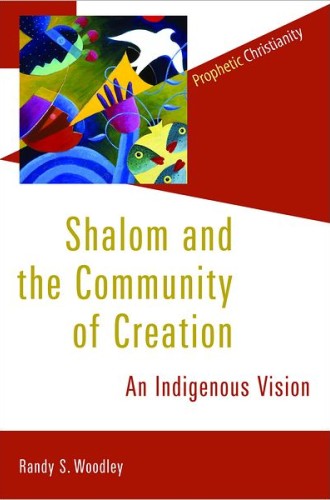Shalom and the Community of Creation, by Randy S. Woodley
For close to 50 years, Americans committed to both economic growth and the daunting goal of “saving the planet” have placed their hopes in a highly stylized image of First Nations peoples. The “ecological Indian” has become the mascot of our eco-nation. If we could simply adopt a Native American worldview, the reasoning goes, we could travel a long way toward pulling ourselves out of our current environmental crisis. Authors with exotic pedigrees introduce us to the esoteric wisdom of native shamans and offer to clear our heads of the dross of Euro-American civilization. There are a lot of these texts—enough to line the shelves of the spirituality and metaphysics sections of our bookstores.
Some who have followed this trend will be wary of any book claiming to offer an “indigenous vision” for the church. Will this author, like so many others, try to convince us that Christian faith is the real source of our malaise, that our hope lies not in the dogma of tradition but in a liberating turn to “the Great Spirit”? Am I going to be cajoled into buying another dream catcher for my bedroom window?
Thankfully, Shalom and the Community of Creation is short on romantic visions and long on rich theological discussion. The genius of the text lies in Randy Woodley’s ability to help readers understand the connections between God’s original vision of shalom, as affirmed throughout the scriptures, and what he has encountered in the distinctive narratives of native North Americans. A Keetoowah Cherokee, Woodley has spent the past 25 years reflecting on the interface between his faith and the traditions of his own and other First Nations peoples. The result of this spiritual journey has been a keen appreciation for the prophetic voice in scripture—a tradition that has too often been lost in the triumphalism of the church—and its similarities with the values of the indigenous people he has served as pastor.





